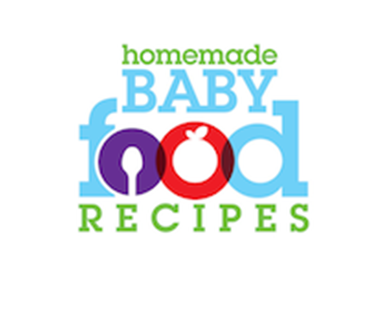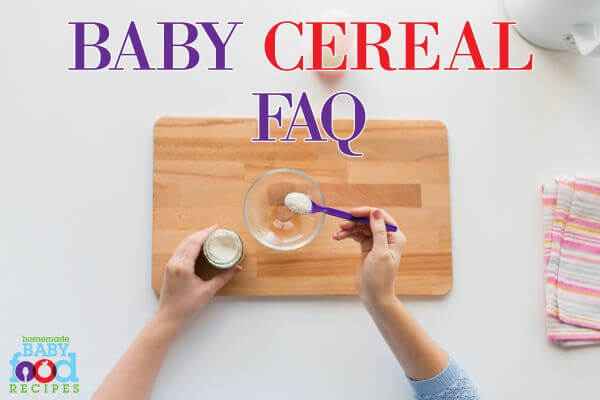Infant Cereal -Your Questions Answered
Updated: Oct 19, 2023
On this page we’ve put together a list of some of the most frequently asked questions about homemade infant cereal.
If you have a question that hasn’t been answered here, then please do contact us here to let us know.
IMPORTANT NOTE: This information does NOT constitute medical advice and you should always consult a medical professional before introducing new foods to your baby.
It is also important to seek professional medical advice regarding your baby’s iron levels.
Does homemade infant cereal contain enough iron for my baby?
Commercially produced packets of infant cereal are fortified with iron.
Homemade infant cereal is relatively low in iron in comparison.
So does this mean you should avoid giving your baby homemade cereal?
No – it simply means that you shouldn’t look on it as a good source of iron and that you should ensure baby receives iron from other food sources.
The exception, of course, would be if your child’s pediatrician specifically recommends introducing commercial, iron fortified cereal because your baby needs extra iron (if tests have shown he is iron deficient, for example).
It is extremely important that your baby’s iron stores remain at an adequate level, as iron is used by the body to make hemoglobin and is vital for the healthy growth and development of your baby’s brain.

If your baby’s iron levels are adequate when you begin to introduce solid foods (which can be established by your doctor by a simple blood test) then you can – with your doctor’s consent – offer homemade infant cereal instead of the commercial variety if you wish.
It’s also a good idea to offer other iron rich foods like avocado.
You might also like to add iron rich ingredients like blackstrap molasses or wheat germ into the cereal itself.
Your doctor may even suggest offering meat to your baby – in fact, you’ll find meat cropping up more and more often on lists of suggested first foods!
Meat is an excellent source of iron, in a form that’s easily absorbed by baby’s body.
Research has shown that you can improve absorption even more by finely pureeing/grinding the meat, which also makes it easy to mix with pureed veggies or even cereal for your baby food beginner.
SHOULD I ADD AN IRON SUPPLEMENT TO MY HOMEMADE INFANT CEREAL?
No – you should never give your baby a supplement of any kind unless recommended by your child’s doctor.
Too much iron can actually be harmful to your baby (we explain this in more detail here).
Can ground cereal be used as a thickener for other foods?
On our Baby Cereal Recipe page we describe the process of grinding rice grains in order to achieve a fine powder, which can then be cooked with water to produce a smooth cereal.
We’ve been asked several times if it’s OK to use this powder to thicken runny purees, or add ‘bulk’ to less filling purees (zucchini puree, for example).
The answer is no, because the ground cereal is raw and very difficult for baby to digest.
It must be cooked before you serve it to your little one.
Now, you’re probably wondering why this doesn’t apply to commercial infant cereals, which are often added in flaked or powdered form as a thickener to purees.
And the reason is that commercial cereal has already been cooked, then dehydrated and processed into powder/flakes etc.
If you want to thicken another food with homemade infant cereal, then simply cook it before stirring it in.
Alternatively, check out some other ways to thicken your baby food purees.
Can I freeze homemade infant cereal?
You certainly can, although some parents do find the texture has changed a little once it’s thawed.
We’ve always found the best remedy is to add a little breast milk (or formula) and vigorously stir it in when the thawed cereal is warmed.
Please note that you should NOT freeze homemade infant cereal that contains previously frozen breast milk.
You can find our tips for freezing baby food – and some great accessories to help you do so – here!
If you’re looking to save time when preparing homemade cereal, you have another option besides freezing it…
…and that’s simply to grind a week’s (or month’s) supply ahead of time.
This avoids any textural problems you may encounter with thawed cereal.
All you’ll need to do is cook the powder before serving (which only takes 10 minutes for rice or oats, or 15 to 20 minutes for barley).
It’s a good idea to store your ground cereal in the fridge, particularly if it’s a whole grain (such as brown rice) which contains the oily ‘germ’.
This can go rancid fairly quickly if stored in a warm room.
Help! I’ve tried grinding cereal, but I can’t get it ‘powdery’ enough!
In our experience, some food processors aren’t quite up to the job of grinding grains properly.
We’ve always had the most success with grinding ours in the Magic Bullet (from Amazon), which we use for just about everything. Another VERY useful tool is an Electric Spice and Coffee Grinder (from Amazon), which does a great job!We find the best results come from grinding in smaller batches, so if you’re having trouble producing a fine powder, it’s worth trying to cut down the amount you’re grinding in one go.
If you just can’t get your homemade infant cereal powdery enough…
…then you have two options.
Option 1
Put it through a sieve!
This is the most simple, effective method of getting rid of the gritty bits that won’t disappear and will leave you with JUST the fine power you’re looking for.
Option 2
You can dispense with the step of grinding the grain altogether!
Instead, cook the cereal as you would normally, then place it in a good food processor and blend it to a smooth puree, adding breast milk or formula as necessary to create the texture you desire.
I want to give my baby homemade infant cereal, but I’ve already started him on packets of baby rice. Now he’s refusing my version! What can I do?
You can use the technique we recommend in all situations where you’re trying to get baby to accept a new food!
Start off by stirring a little of your homemade food into baby’s commercial cereal, then serve it to him.
The next day, increase the amount of homemade cereal you add by just a little.
Continue to increase the quantity of cereal day by day, until eventually (we hope!) your little one will happily accept the 100% homemade variety!
Can I add cereal to my baby’s bottle to help him sleep better at night?
You may be advised to do this by family and friends, particularly if you’ve mentioned to them that you’re tired from waking to feed your baby during the night.
And if you ARE tired, you may even be tempted to give it a shot!
But PLEASE do not even consider thickening your baby’s formula (or breast milk) with cereal, no matter how many times you hear “Well, it didn’t do MY child any harm!”.
This practice has the potential to do YOUR child harm, which is reason enough to avoid it altogether!
Reasons why you should NOT add cereal to your baby’s bottle:

It may cause him to choke.
Young babies are not equipped to swallow anything other than milk.
The difficulties in trying to cope with thickened milk could lead your baby to inhale the cereal.
It can lead to weight problems.
Your baby has a natural ability to regulate his calorie intake (more on this here).
Thickening milk with cereal interferes with this ability and provides too many calories for the volume consumed.
Filling him up with cereal may mean his nutritional needs are not being met.
Breast milk or formula provide all the nutrients your baby needs, usually for the first 6 months of life.
The quantity of milk he consumes will likely decline when his tummy is full of cereal.
If your objective is to get your baby to sleep through the night, you may find yourself getting even LESS sleep than before!
Adding cereal to milk can cause digestion problems like gas, which will keep you both awake, or may even lead baby to poop at night… so you will not only WAKE up, you’ll have to GET up, too!
Wakefulness at night WILL pass.
If you’re still feeling tempted to add ‘bulk’ to baby’s night-time bottle, please be assured that this stage of night waking will pass.
We have five children – we understand PERFECTLY how you feel… and sleep deprivation is NOT funny!
The desperation to gain a few hours extra is enormous, we know.
But adding cereal to baby’s milk is not the answer – it can be counter-productive at best… and it can also be incredibly harmful.
Remember that your little one only has a small tummy, so those night-time feeds really are necessary – as is the closeness your baby feels from contact with you throughout the night.
Although it feels as if it has gone on FOREVER when you’re in the middle of it, the period of waking at night really does seem short when you look back on it… we promise!
Baby will settle down at night, particularly when solids are introduced… but at a time when his body is truly ready to digest them effectively.
IMPORTANT NOTE
Some pediatricians will suggest adding cereal to baby’s bottle, particularly in cases of infant reflux (although we do sometimes hear from parents who tell us that they not only felt this didn’t help their babies keep their milk down, but seemed to make them spit up MORE!).
Nevertheless, if your baby has infant reflux, please don’t attempt to thicken his milk without your doctor’s consent.
We hope you found the answers to any questions you may regarding infant cereal – but please do let us know if the answer to YOUR question isn’t listed here.


